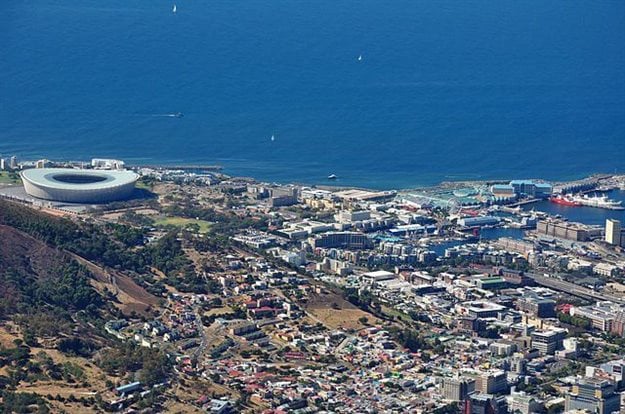
Top stories



ESG & Sustainability#BudgetSpeech2026: SRD grant unchanged, other Sassa social grants see hike
3 hours



More news







ESG & Sustainability
South Africa’s carbon tax should stay: climate scientists explain why













Many investors may feel they’re better off putting their money elsewhere, whether that’s equities, index funds, bonds, or any other vehicles. Provided they invest in the right property vehicles in the right areas, however, there are still real opportunities in the South African property space.
While residential prices may be down overall, there are still positive signs to be found. The JSE-listed Investec Property Fund, for example, recently affirmed that it still sees acquisitive growth opportunities in SA.
In Cape Town, for example, there’s been a surge in first-time buyers in the second half of 2019, with sales 3.3 times higher than they were in 2018. Prices in the Mother City, meanwhile, have risen at 6.6%, against a national average of 3.9%
The Atlantic Seaboard in particular continues to deliver solid investment value. After briefly finding itself under pressure, activity is once again on the up. Given the area’s desirability and proximity to numerous tourist hotspots, Blue Flag beaches, and the Sea Point Promenade, that should hardly be surprising.
Those factors also make it ideal for anyone looking to invest outside of the traditional residential space.
While the Atlantic Seaboard still offers opportunities in the buy-to-let segment, it’s understandable that the current economic climate might make some investors nervous about committing to this kind of investment.
Fortunately, there are a growing number of alternative options in the area available to investors. The best of these vehicles offer investors the chance to put their money into yield- producing, low-risk assets within a tax efficient vehicle.
The tourism sector in particular has the potential to meet all of these demands. With the water crisis over and a relaxation in visa requirements for visitors from several countries, tourism numbers are likely to see a resurgence in the coming years. In fact, that resurgence is already happening: statistics collected by the City of Cape Town reflect significant increases in the number of visitors who booked flights to the city for the December 2019 to March 2020 period.
Cape Town was expecting almost 50,000 travellers to arrive from the UK over the December 2019 to March 2020 period, an increase of 30% when compared to the same period last year. Visitors from Germany and the USA were expected to increase 20% and 11% respectively.
With easy access to so many of Cape Town’s top tourist destinations, the Atlantic Seaboard will be as appealing to many of these new tourists as it is to existing visitors. They’ll also bolster a strong annual contingent of business visitors.
Every year tens of thousands of business tourists come to Cape Town, many of them for conferences (Mining Indaba and AfricaCom being two of the biggest examples).
Investors could therefore do far worse than to invest in hospitality-based real estate. In fact, government is actively encouraging growth in this sector, giving investors in the space 12J status, meaning that they can write off 100% of their investment against taxable income.
With the right 12J vehicle, investors can also ensure that their money’s going into a portfolio of properties, reducing the overall risk profile. Additionally, taking this approach allows investors to get into a lucrative portion of the property market at a much lower price point than if they were to buy an individual property themselves.
While there are undoubtedly challenges in the overall South African property space, it’s clear that there is still real value to be found, provided investors take the right approach in the right locations.
And, with global investors pulling out of equity markets at record levels, now may actually be an ideal time to invest in property.
And when there are vehicles that provide investors with major tax incentives, while contributing to economic and job growth, it becomes a no-brainer.